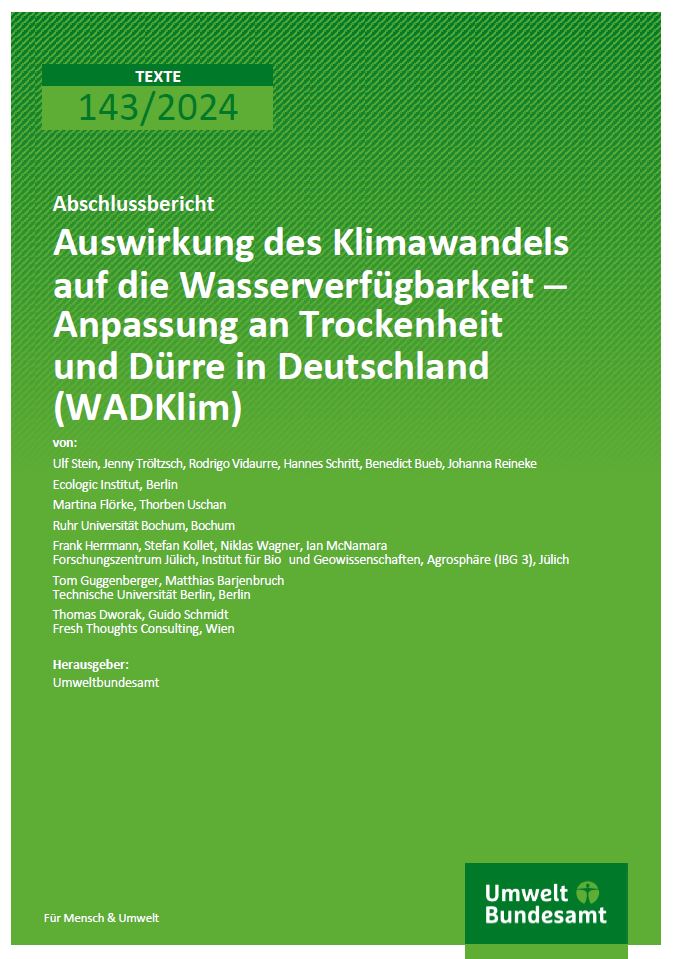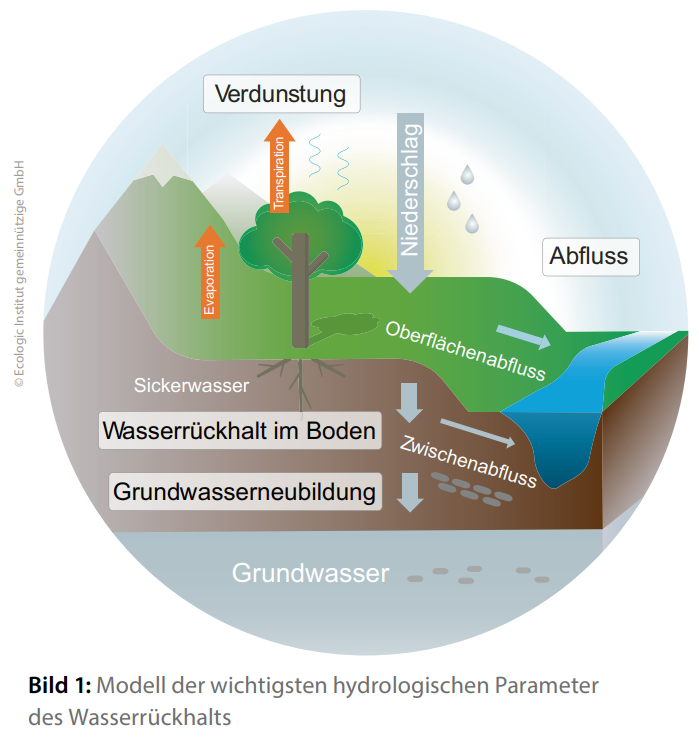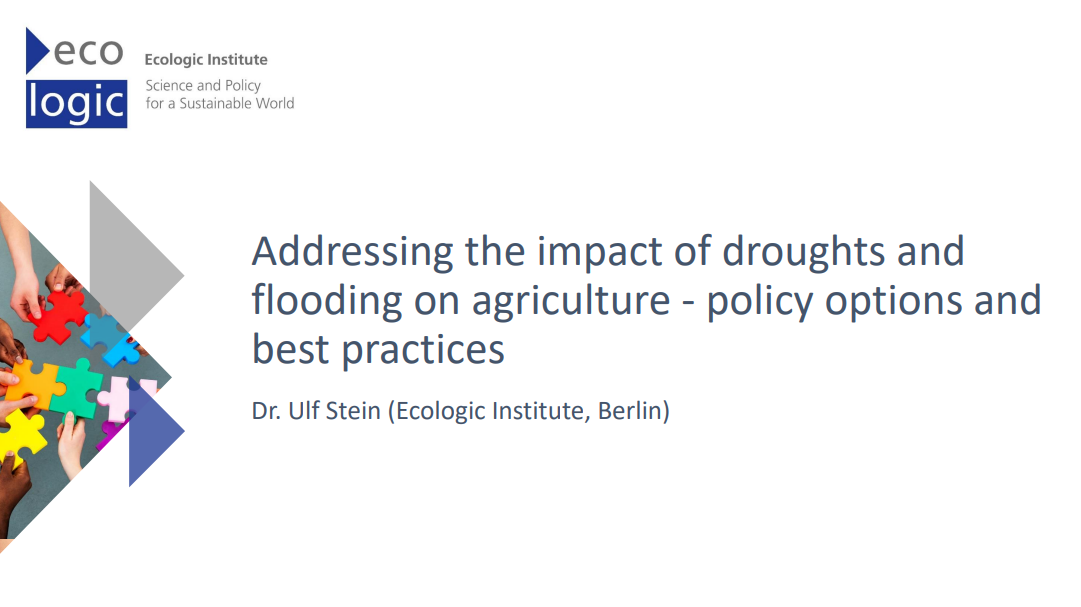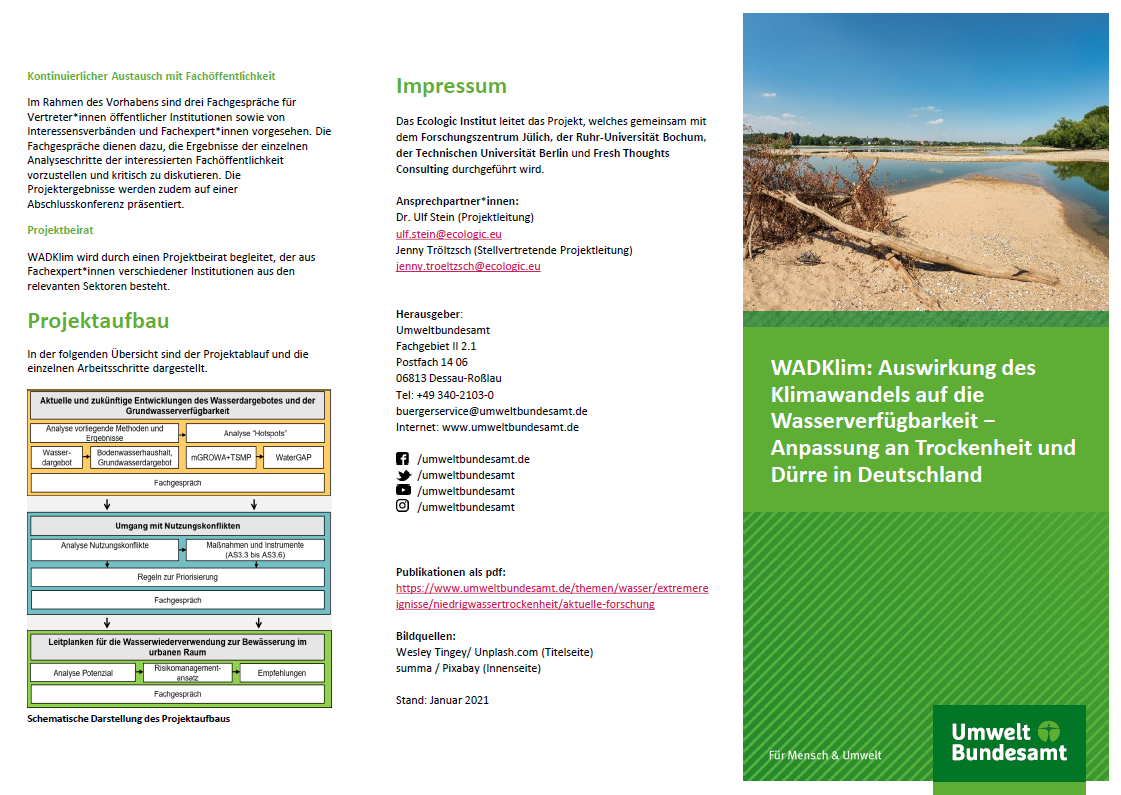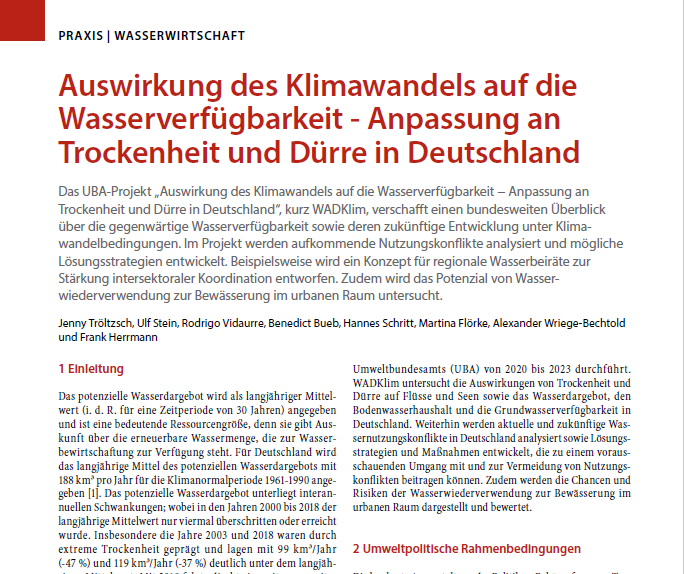Maßnahmen zur Erhöhung des Wasserrückhalts in der Landschaft
- Publication
- Citation
Stein, U., Schritt, H., Uschan, T., & Reineke, J. (2024). Maßnahmen zur Erhöhung des Wasserrückhalts in der Landschaft. Wasserwirtschaft, 5, 36-41. http://doi.org/10.1007/s35147-024-2335-7
As climate change intensifies, the importance of effective water retention in landscapes has become increasingly critical. Dr. Ulf Stein and Hannes Schritt from Ecologic Institute, together with their colleagues, have addressed this pressing issue in their latest publication in Wasserwirtschaft. Their comprehensive study, part of the WADKlim project commissioned by the German Environmental Protection Agency (UBA), encompasses 69 innovative measures to enhance landscape water retention, helping to mitigate extreme weather events such as floods and droughts.
Key Measures and Findings
The study highlights various practical strategies sourced from water management, agriculture, and forestry in Germany. These strategies aim to improve the landscape water balance and strengthen the resilience of ecosystems. Among the measures identified, several stand out for their efficacy and cost-effectiveness, for instance adapted crop selection and rotation, buffer strips and field margins or sediment retention ponds.
These measures not only improve water retention but also offer multiple benefits, such as flood protection, drought resilience, and enhanced biodiversity. The study underscores the potential of these strategies to provide significant environmental benefits with relatively low financial investment and quick implementation timelines. For instance, measures like buffer strips and adjusted crop rotations can be implemented swiftly and start showing positive effects within a short period.
Broader Implications and Recommendations
Ulf Stein, Hannes Schritt and their colleagues have created a helpful toolkit for environmental management and planning. The research is emphasizing the need for integrated approaches to water retention in both rural and urban settings, highlighting that decisions must be made locally, with collaboration among all stakeholders. Ideally, individual measures should be integrated into a comprehensive spatial concept, such as "sponge landscaping". The article ultimately points out that future efforts should identify interfaces with existing plans, such as the Water Framework Directive or the Floods Directive, and address potential implementation barriers.
For more detailed insights and access to the complete catalogue of measures, visit the UBA website.
